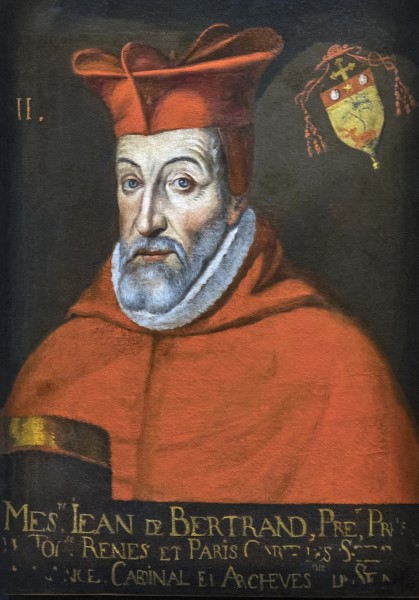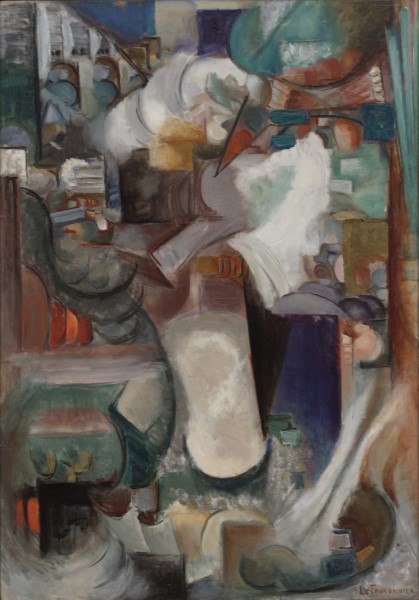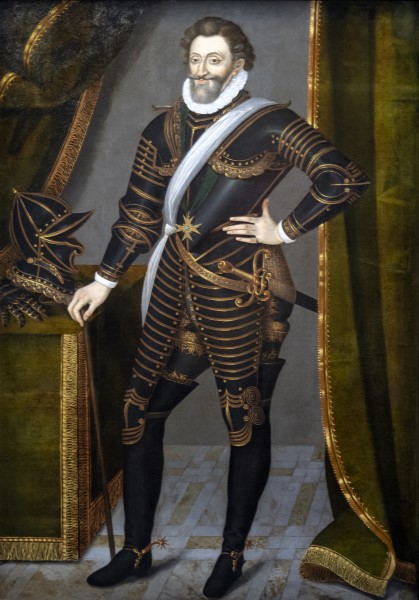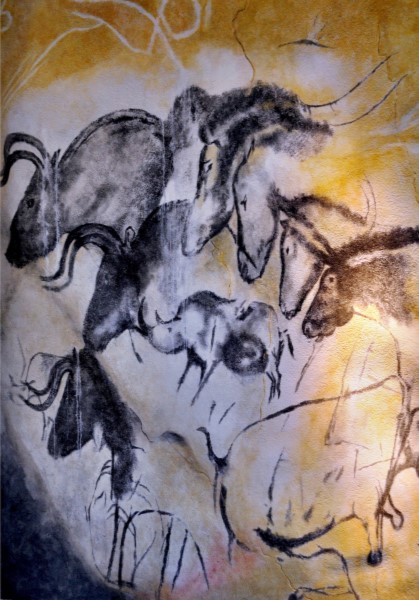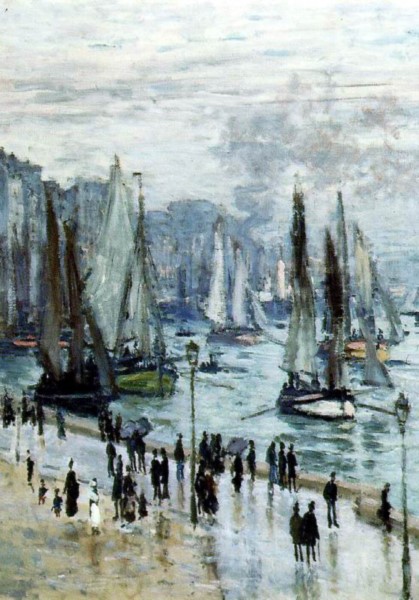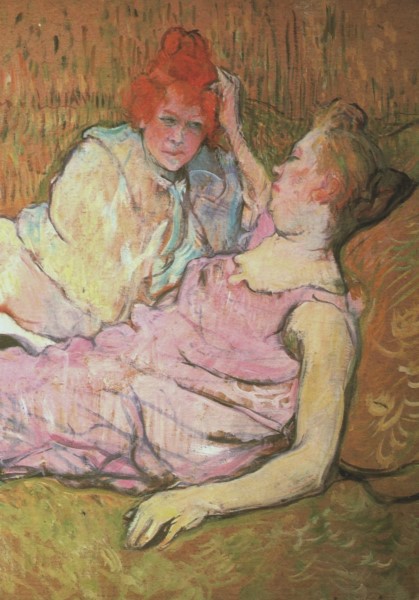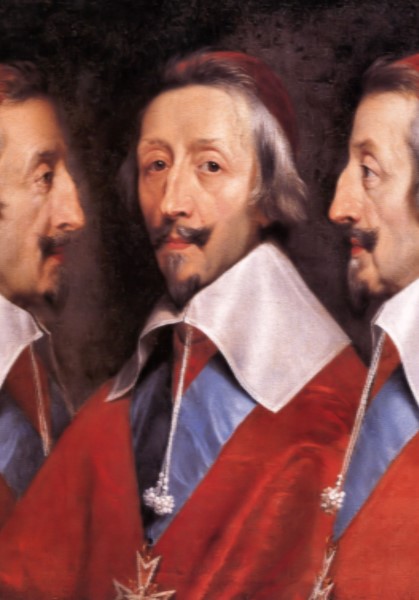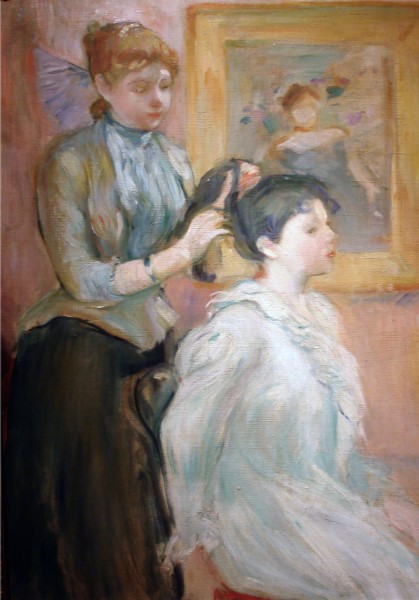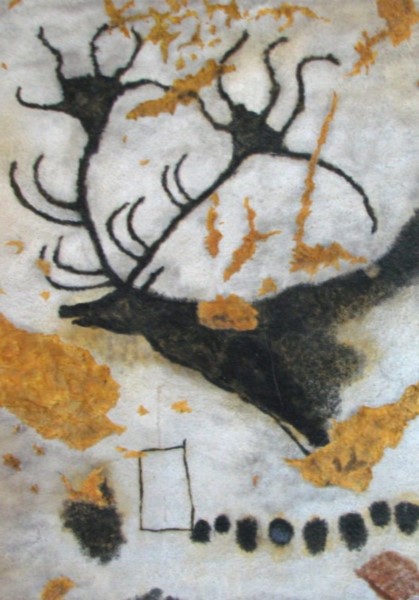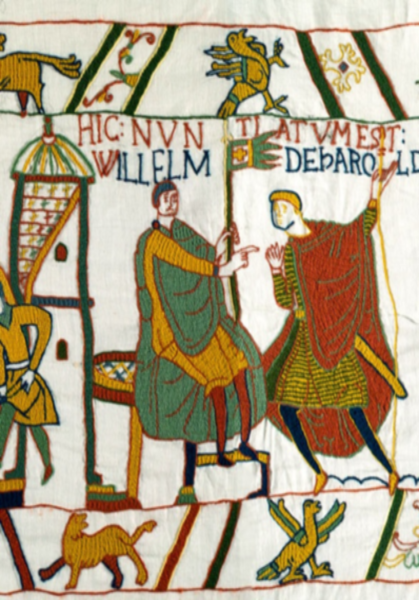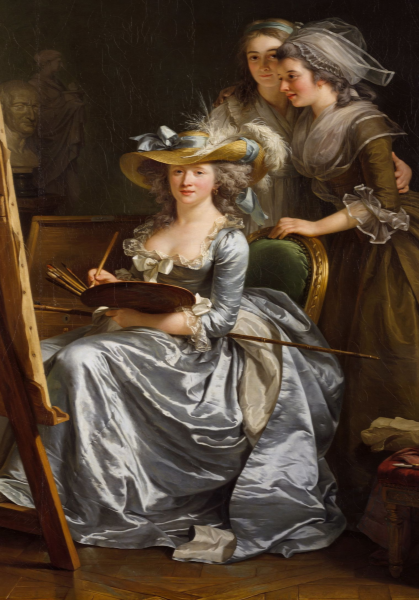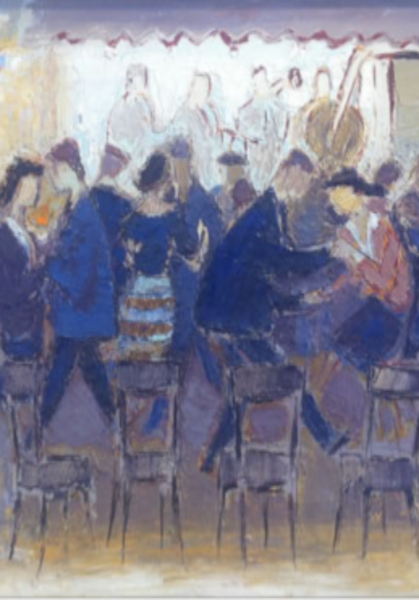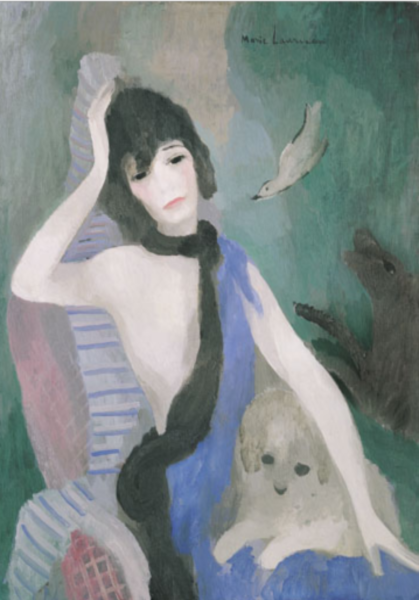David P. Jordan*
The message was on my answering machine, Sunday, July 13 (1997): ‘ David, this is Keith Baker. I have very sad news. François died last night.’ The details were few and imprecise. Debbie Furet had called around midnight with the dreadful news, asking Keith to tell François’s American friends. He had fallen on the tennis court, gone into a coma from which he never emerged, and died in the hospital some days after the fall. Debbie was still in St. Pierre-Toirac, their summer home in the Lot, in southwestern France, where François had fallen. The funeral was scheduled for Tuesday.
The newspapers, French, British, and American, had obituaries by the 15th. Most had some version of a bizarre accident: playing tennis doubles François had collided with his partner or become entangled in his feet and fallen backward. That François, remarkably fit and at the height of his intellectual powers and fame, should die in this way only deepened the shock. Such a stupid accident …. When I got to France and Toirac, a month after François’s death, Debbie said the newspaper accounts, however consistent, were not accurate. François had collapsed on the tennis court, but she thought it was probably a stroke that killed him.
I knew François in his glory, from the spring of 1988 until his death, although I had met him and corresponded a few times before our friendship began. I was not one of his students, was not in his inner circle of intimates, nor was I a direct or self-declared disciple. I collaborated on none of his major projects. But I knew something of the private man, both in America and France, and I looked and listened intently.
In 1988, sitting in the horseshoe booth at the one of François’s favorite restaurants in Paris, I reminded him that we had met some years previously in Rome, at the bicentennial conference on Edward Gibbon’s Decline and Fall of the Roman Empire (1976). Now it was the eve of the Paris colloque on “The French Revolution and the Creation of Modern Political Culture,” which François was hosting at the Ecole des Hautes-Etudes. He remembered the Rome meetings but not, I think, our first meeting. We had been lavishly received and gathered on the Capitoline Hill for a group photograph. It was here, Gibbon insisted, he had received his inspiration for the Decline and Fall. Later that afternoon we assembled in the Campidoglio in sight of where Gibbon had experienced his epiphany. Participants and organizers sat around a huge three-sided configuration of tables. After some words of greeting, we began to talk informally about the great book and its author. Two of the more distinguished British scholars present, Sir Stephen Runciman and Bernard Lewis, became involved in a public and polite discussion about what their respective teachers, J.B. Bury and Norman Baynes, had thought about some topic from the Late Roman Empire. The duologue moved to more and more minute points of interpretation. By chance I was seated next to François. He leaned over, nodded toward Runciman and Lewis, and whispered, ‘Les Anglais.’ I have long used the story to illustrate Anglo-French perceptions of each other and François’s sense of irony.[1] He then spoke little English so sought out the francophones and took no part in the public discussions. He was strikingly handsome, elegantly yet informally dressed. I recall a gorgeous suede jacket. When I knew him later he dressed more in the manner of a young academic: corduroy jacket, cotton or corduroy slacks, blue button-down denim shirt with a roughly knotted wool tie, loafers, and when it was cold often nothing more than a muffler wrapped around his neck. His famous essays — “Le catéchisme révolutionnaire” and “Tocqueville et le problème de la Révolution française” as well as the mildly revisionist history (with Denis Richet) La Révolution française — had already appeared, but I think most of the participants at the Gibbon conference took his brilliance on faith. François had written nothing on Gibbon, on English literature, on Roman history: he was not an obvious choice for the conference, but he proved an inspired one. I don’t remember if he mentioned it to me or if I heard from Stephen Graubard, the man responsible for inviting François, but there was to be an account of our conference in Le Monde, which François would write. He was then doing some journalism. His essay for the proceedings, “Civilization and Barbarism in Gibbon’s History,” was concise, erudite, carefully argued, and well-written. The essay has all the qualities that marked François’s historical work, including his remarkable sense of where the pieces fit into the grand contours of history: “Gibbon,” he wrote, fixing him accurately and suggestively in French rather than British culture — a welcome counterbalance at the conference — “was somewhere between Tillemont and Renan, but this ‘somewhere’ constituted more than simply the philosophical consensus of the Enlightenment; it was also an original vision of the past and present in Europe.”
Some years later (1988), in Chicago, I cultivated François’s friendship. He was at the University of Chicago every fall to teach, and he made a brief visit every spring, usually for ten days or so. He spent a third of the year in Chicago, carefully avoiding the hot and the cold seasons there; a third of the year in Paris; and a third of the year in Toirac. ‘The good life,’ he said. I got up my nerve, called and proposed lunch one day. He accepted and suggested the Quadrangle Club at the University of Chicago. This was the first of many such lunches. The food was undistinguished; his conversation was exceptional.
He never declined a lunch invitation. Most often we met at the Quadrangle Club, but occasionally off campus. The local restaurants ‘are all no good,’ he habitually declared before we picked one. His fondness for the Salonika, (‘Charlotte’s [his young daugher’s] favorite restaurant,’ he called it), a local greasy-spoon, came from his love of an American breakfast. He liked the Salonika’s version of eggs, bacon, and hash browns.
I shamelessly picked his brain. When I was writing about Haussmann and Paris in the Second Empire, that’s what I probed. (He thought his chapter on Napoleon III in La Révolution one of his best and most original). I can testify that he gave his friends what is most precious to a scholar and an intellectual: his time and interest in one’s work. Having an apéritif one evening at his apartment, he gave me an index card with a reference to George Sand’s Œuvres autobiographique, where she talks about meeting Haussmann as a young sous-préfet. ‘What’s that?’ asked Debbie. ‘It’s my contribution to his book,’ said François. And so it became. He also read my manuscript. ‘I am reading you,’ he said in his dry way, and then explained how I had gotten the character of Julien Sorel wrong, gave me the benefit of his suggestions (all of which I silently incorporated), and provided a blurb for the dust-jacket.
When I had finished the Haussmann book I sought his counsel for another subject. Among the many causes to regret François’s premature death is that he left behind a full suitcase. A number of these projects, both major and minor, had been put aside but would doubtless have been resumed after his Napoleon book. He had made notes over the years on his teachers, colleagues, and acquaintances, for example. These, alas, were probably never to see the light of day as essays, although François’s remembrances and opinions of Ernest Labrousse, Raymond Aron, Fernand Braudel, Michel Foucault, would have been excellent fare. He was reticent, he said, to write about figures recently dead, men who still had a place in French intellectual life, men with disciples, apostles, friends and enemies. Although himself a very public figure he had a passionate sense of the private, a very French conviction.
He had a long list of subjects awaiting their historian or biographer: Rœderer, the Halévy family, and Mirabeau (this reserved for himself). All these biographical subjects interested him for their emblematic qualities. Mirabeau especially. François thought him the great man of the Revolution. His life and career touched and revealed so much of the age: ‘It’s all there,’ he explained: ‘the Enlightenment, the nobility, the provinces, the ancien régime and the Revolution.’ The Mirabeau sources were scattered, and he would need Debbie’s help with the German materials. Rœderer, a minor figure of the Revolution (although a quite formidable one during the Empire), had been present at a number of great events, survived the Terror, went on to a Napoleonic career and to write interesting memoirs. He was a Jew, and François thought him worth a book. The Halévys, one of the great French intellectual dynasties, were also intriguing for the Jewish angle and for much else. Although Jewish in origin the family had repeatedly married into Protestantism. One Halévy had been Offenbach’s librettist and left charming memoirs. The twentieth-century Halévys had turned both to the right and the left. François came upon their correspondence (and provided an introduction for a selection) while researching Le passé d’une illusion.
The most unusual and daunting project was the meaning of World War I. He thought the origins and beginnings of the war, as well as the fighting, had been well done by historians; but despite a huge literature its logos remained elusive. The second chapter of Le passé d’une illusion, he explained, had been difficult to write and could serve as the point de départ for the tremendous undertaking he ironically proposed to me. He also wanted to write a book about the first historians of the French Revolution, taking 1795 as his perspective. He thought the linkages between the Russian Revolution and the French had deformed the interpretation of both. He wanted to get back to the meaning of 1789 before the needs and obsessions of our century intruded. He spoke also of doing a book on 1848 which would explain ‘exactly what happened’ in February. This last is not a typical Furet subject. He had in mind a micro-history of a few days, an old-fashioned historian’s quest to understand an event.
He was not a brilliant conversationalist in the sense of sparks of wit, memorable epigrams, irony dazzling the listener. Neither was he a raconteur with an amusing collection of anecdotes, nor a gifted gossip. Rather he was thought-provoking and penetrating, almost by nature. Deliberate, easy, well informed, opinionated, and commanding a remarkable English (or rather American, for his speech was idiomatic and sometimes delightfully peppered with colloquialisms or a hint of vulgarity), he could talk on a broad variety of subjects. He equally could produce a formal, slightly old-fashioned, even literary, sentence with the same quality of surprise in both listener and speaker. Talking about a family member he described him as one ‘with whom I have had the utmost difficulty.’ It was this element of surprise when François spoke English that I found most striking. He was clearly thinking in his second language, on that unconscious level that hides the end of a sentence or a thought until it is created and uttered.
What made François’s command of English so unexpected, I think, was that he learned to speak the language in his forties; although he spent time regularly in America, he lived mostly a French life. Two thirds of the year he lived in France. He always wrote in French and was lucky enough to have his last wife, Debbie, translate for him. Together they spoke more French than English, and he made a point of speaking French with Charlotte, his young daughter. He had learned to speak English, he liked to recount, by playing poker with some cronies when he was a visiting professor at the University of Michigan. His accent in English was slight, rhythmic rather than Maurice Chevalieresque, and he would make droll comments about the words he had difficulty pronouncing (‘girl’ was one such). He was fascinated by some of the more colorful or figurative aspects of the language.
He told me he had never heard a good explanation of ‘stalking-horse,’ and I don’t think my efforts satisfied his curiosity. I never heard him utter an obscenity in English, but I remember standing on a Hyde Park corner in October or November while we were deciding where to eat. It was cold, my wife and Debbie were discussing possibilities, Charlotte was fidgeting, and François was getting impatient: ‘Hurry up. I’m freezing my ass,’ he said, and then laughed.
In America he had francophone and anglophone friendships, as well as bilingual ones. He and Colin Lucas, who was perfectly bilingual, always spoke French together, except when they were in linguistically mixed company. The same was true of Robert Morrissey. With Keith Baker he spoke both French and English, Keith always letting François’s choice determine the language. He spoke English with me, except on a few occasions, in France and Chicago, when we were with French speakers. He enjoyed speaking English and would sometimes choose to do so when French would have been appropriate. At the meetings of the University of Chicago group on new approaches to French history, which often functioned in both languages, François almost always spoke English.
On the Committee of Social Thought in the University of Chicago, which he chaired for several years, a few of his colleagues taught Shakespeare courses. François, modest about his mastery, said he couldn’t do that because his English was not good enough. This, I think, sprang from his belief that one could not be an accomplished writer in two languages. The subtleties of rhythm and nuance, meaning and allusion, could never be fully mastered. It was a topic we several times chatted about, and I assume it was perennially on his mind. Could I think of any writer, he asked, who had achieved the same level of expression and style in two languages? Conrad, Nabokov, Koestler, Green he brushed aside as significant writers in only one language, albeit an adopted tongue. He conceded that Gibbon, whose youthful Essai sur l’étude de la littérature even fooled Sainte-Beuve, could write brilliantly in English and French, but the great works were in English.
He thought he was able only to judge the accuracy (or lack thereof) in English translations of his own work and would not go beyond this cautious caveat. Yet he was dissatisfied with some of the translations of his work. Not so much because they were inaccurate, as because they were inelegant. He was well aware that his French bedeviled American (and English) translators: a level of abstraction and a philosophical vocabulary that was difficult to render, as well as the clarity and conviction of a style that was fluent, flexible, and above all the instrument of a penetrating intelligence.
His obsession with language is apparent in his writing. As far as I can judge his prose is brilliant and ideally suited to his purposes. He wrote longhand with a fountain pen — none too legibly — and revised constantly. He spoke of his writing as a partly ‘masochistic’ enterprise, and took great pains. He returned early to France the year Le passé d’une illusion went to press, for a month of final rewriting: ‘I want to fix some things. That’s important to me,’ he said. His earlier writing — I have in mind the chapters he wrote in the collaborative La Révolution française (1965) — was, to my mind, a bit too faddish, self-consciously slick, with some anglicisms (stopper and stocker for example) and the unfortunate image of the Revolution ‘skidding off course’ (dérapage), much mocked by his critics. (He would later say that the metaphor was Denis Richet’s.) The mature books that will assure his reputation, La Révolution and Le passé d’une illusion, have all the energy and, I think, more durable brilliance than his early work (still under the influence of his journalism), within the confines of a purer literary vocabulary.
He was keenly appreciative not only of style but of wit. He read, savored, quoted, and admired Saul Bellow’s writing and delighted in his conversational wit. He thought Allan Bloom, another colleague and friend, very funny, and he always asked after my friend, Richard Levy, whom he had met at my house several times, and also thought witty. Keith Baker has great verbal agility, and when Colin Lucas, responding to François’s question about which of the colleges at Oxford were most prestigious brought Cambridge into the mix, with much drollery, he was delighted. When François’s attention was focused on a conversation I never saw him miss anything, be it pun, allusion, word play or earthy humor. But he was easily bored , distracted, preoccupied with his own thoughts. Debbie describes this self-absorption in public as François working. He was able to concentrate on what was on his mind while sitting through some obligatory dinner. Debbie made a point of hustling François quickly into the elevator or down the stairs when they departed un dîner en ville, before he began discussing the evening. Although quite sociable he often disliked such occasions.
François Furet commanded American culture as thoroughly as he commanded our language. The existence of so monarchical an institution as the university in the most democratic society in the world amused him, and he often commented on the paradox. He understood perfectly how an American university worked and was a marvelously successful wheeler-dealer at Chicago, responsible for rebuilding the Committee on Social Thought. Proximity to the throne was what mattered, and François always had Hannah Gray’s ear. When she retired and was replaced by Hugo Sonnenschein, I asked him about the new president: ‘He’s Jewish so he can’t be all bad,’ was François’s response. This was a mot he especially liked, for he used it on several occasions. The other mot I heard him repeat was: ‘The French think all Americans love them. The Americans think all French hate them. And both are wrong.’
He knew how to write an American letter of recommendation, a skill uncultivated by French intellectuals who think what is expected is a critical review of all their subject’s scholarship, or a rhetorical letter of introduction presenting a provincial protégé to an influential figure in Paris. François followed Chicago politics closely and enjoyed discussing the scramble for Mayor Richard J. Daley’s mantle as well as the inimitable local brand of political scandal and corruption. So too did he watch American national politics. His appraisal of Clinton’s second term victory, when the candidate completely filled the center leaving no space for Bob Dole, was as shrewd and informed as any I’d read or heard. François was shocked, however, at Hillary Clinton’s intrusion into national politics, becoming a political figure in her own right although elected to no office and with no constitutional standing. He was also mystified, as are many Europeans, by the American equation of gun ownership and freedom. He understood and had read widely about America’s obsessive and grim grappling with race. On a more mundane level he bemoaned the American neglect of ‘the best part of the day,’ the time after work when one had a drink with friends in a café. There were none in Hyde Park, and all his acquaintances and friends had gone home to their families by 5 p.m.
He knew the history of America in the revolutionary period intimately, and a good deal of this erudition found its way into his La Révolution of 1988, as well as the Dictionnaire critique de la Révolution française.Otherwise, he said, with excessive modesty, he didn’t know much American history. He was very well informed about the Civil War and admired Abraham Lincoln, which I think sprang from his deep interest in the problem of race in America. He once treated his undergraduate seminar at the University of Chicago to what must have been a brilliant analysis of the race question in America. A couple of students later told him no American could have made such a presentation: none would have had the freedom to discuss race so frankly and objectively. He was an outsider, able to see and say things difficult for an American. The other aspect of our history he knew very well was American communism, integral to Le passé d’une illusion. A few years ago, just before we were to leave for Toirac, François telephoned. Could I pick up a copy of a particular history of American Communism for him? He couldn’t find it in France.
François’s long and loving relationship with America was exceptionally fruitful. In France he was a more controversial, important, and combative figure. He had reached the top of a very intense, ingrown, competitive, and often ideologically driven caste in his native country in quite an unorthodox way. He did not have a doctorat d’état, the highest academic degree in the French system; he was not connected to the Sorbonne; he had been ostracized by the then dominant school of Marxist historians of the French Revolution who thought him first a renegade and then an apostate. In America he seemed more relaxed, even Olympian. He was not expected to weigh in on the major intellectual debates of the day. He enjoyed the noblesse obligeof the distinguished professor, able to dispense patronage. The social informality, the lack of institutionalized (or linguistic) barriers or distinctions, and the presumed if not always practiced equality are often attractive to Europeans, at least those cosmopolitan enough to live outside their own cultures. François liked America and Americans. He believed, with Tocqueville (in Democracy in America), that the new society was Europe’s future, not her past. On this level his American years were a laboratory for testing Tocqueville’s observations and speculations. But he came originally not merely for intellectual curiosity. Keith Baker told me François came in search of good students. Excluded in France from access to some of the best students of the Revolution because he was outside the traditional university system — the Ecole des Hautes Etudes, of which he was président, did not, I think, grant a degree twenty-five years ago — and disgusted with the ideologically driven concerns of Marxist historiography, he was frustrated in France. First at the University of Michigan and then at the University of Chicago, he found a home for his ideas and influence. He also liked American students: ‘they read whatever I assign,’ he reported with ironic pleasure.
The precise linkages between living in ‘the most democratic society in the world,’ a description he often used, and the development of his own thought are elusive, but he found his great subjects during his American years. The French Revolution and Communism in the twentieth century were life-long obsessions, yet only after America became a regular rhythm in his life did François write his major books. He found here a congenial atmosphere and experienced several important intellectual encounters.
The open stacks of American university libraries provided François with a special pleasure. He was an avid stack explorer. He first read Augustin Cochin in Ann Arbor. He of course knew who Cochin was, but the Communist historians of the French Revolution — he always insisted on this designation for he believed they misunderstood Marx — in whose camp he had begun his career, dismissed Cochin as a reactionary unworthy of attention. François shared this judgment until he found Les Sociétés de Pensée et la Démocratie: Etudes d’histoire révolutionnaire (1921) in the stacks at the University of Michigan. It proved a fruitful intellectual encounter. He was enthusiastic about all his stacks discoveries. Visitors to his apartment were invariably told about his most recent find, sometimes even treated to a reading (the places marked with small strips of paper).
His own reading was omnivorous, in French, English, and Italian. He read Italian fluently and with pleasure, and was delighted that the Italians did so much translating. They provided him a key to those rooms of European scholarship that would otherwise have been locked. He read German with difficulty. Debbie ‘helped’ him with German texts, as he put it. I think this was a euphemism.
The coffee table in the Furets’ small Hyde Park apartment was always (neatly) piled with books. Both Debbie and François were great readers, but I think the coffee table was François’s territory. It always held a miscellany of books in French and English. There were the newly published books of his students and colleagues along with new editions of his own books. As the translations of his work multiplied a shelf was set aside. Mostly, however, the coffee table was for books not directly involved in his research.
He was a passionate reader of letters, an unexpected taste for a historian with such a philosophical bent. There was often a volume of letters on this table, and I remember him reading from the Hannah Arendt-Martin Heidegger correspondence, stuffed with markers. It appears prominently in Le passé d’une illusion as does a good deal of others’ correspondence. He was especially delighted with having found the letters of Alain (Emile Chartier), the philosopher and great pedagogue at the lycée Henri IV, which form an important part of his account of World War I in Le passé d’une illusion.[2] He also read biographies, again not an expected taste. The wonderful portraits that alternate with the analytical line in his books are enriched by these intellectual appetites. Gluttonous for the correspondence of others, he wrote relatively few letters himself. Usually he just picked up the phone. Debbie handled much of the correspondence, as she handled so much else that freed François to do his work.
On my last visit to his Hyde Park apartment he had just finished reading a biography of Armand Hammer, which he recommended.[3] He was no snob and enjoyed the books of American journalists who ‘had done their homework.’ Despite his omnivorous reading, the canon of French literature formed the centerpiece of his splendidly furnished mind. He offered courses at the University of Chicago titled simply “Tocqueville” or “Victor Hugo” or “Benjamin Constant” and read and reread their books. In Toirac he had dozens of the handsome Pléiade volumes in a very large glass-doored cabinet in the entrance hall, a good many inherited from his family. For François they were not cultural ornaments. He knew this literature intimately. He also had almost all the volumes in the Bouquins series, which he worked from and recommended for their price, their appeal as books, and the quality of the editions. There were books everywhere in that large house, known in the village as Le Château, as there were in all his residences (Chicago, Paris, and Toirac). Literature always predominated.
His study in Toirac, which Debbie shared, was lined with books, floor to ceiling. The overflow went to the entrance hall, additional books to a newly built very large bookcase on the second floor, again in a hallway at the top of the stairs. In Paris bookcases ran down a long hall that connected his study and the private rooms of the apartment with the living room (which was relatively free of books except for those neatly stacked on a table and a relatively small bookcase along one wall). He loved books, used them constantly, was very neat, even fastidious with his books, although he marked and wrote in them, and was surrounded by them wherever he lived. He was a bibliophile, and when he had some disposable income bought rare books, but always those he could and would use in his work. He was not so much a collector as someone who loved to turn over the pages of the original editions as he worked with them. He had a set of the Chronique du jour as well as a couple of other newspapers from the Revolution, and he told me he had been very tempted by a complete set of the Archives parlementaires (more than eighty volumes), but it was too expensive. He owned a beautiful, rare five-volume set of Rœderer’s works, of which there were only fifty copies printed. He identified his books by means of a stamp showing a leaping furet (ferret) above his name. This visual pun, in the same spirit as Edward Gibbon playing on his own name, had been designed and made by Debbie for his birthday.
François was generous about presentation copies. He kept a small stack in each residence, which he warmly inscribed and presented to friends. Once when our conversation turned on Israel he mentioned his two essays on the Jewish state, and the next time we met gave me an inscribed copy of L’Atelier de l’histoire. He was proud of the special niche he occupied among French intellectuals: he was not Jewish, but was a friend to the Jews and to Israel. This juxtaposition made him a much-sought commentator on French-Israeli relations. He had appeared with Yasser Arafat, for example, and remarked that the Palestinian leader’s English was ‘not so good.’ He has also written compellingly on the Jewish question. In addition to the essays in L’Atelier de l’histoire, his now dated but still important collection of papers from the colloquium he organized, in July 1982, L’Allemagne nazie et le génocide juif, raises all the important questions and remains the most useful collection of recent scholarship.[4]
François was opinionated, and his opinions on all matters, whether small or large, were unambiguous, often blunt, and sometimes exaggerated to caricature. ‘She doesn’t know oui from non’ was how he described the French of a woman who did indeed know the difference, and a good deal more. He didn’t think much of French literature scholars who came to America to make their careers. He joked about the American professorate, among which he had many friends, and the jokes carried a dose of acid. ‘It’s too far to drive just to visit another American professor,’ he told me as we set off from Toirac to visit another friend. French intellectuals who wrote about America from slight familiarity, he scorned. ‘He knows nothing about America,’ was his unequivocal judgment on many of his countrymen; and he was sharply critical of the anti-American stance of Le Monde. He disliked the philosophy of Jacques Derrida — although he had him named to the EHESS — and thought Clifford Geertz’s anthropological approach of little use in understanding so enormous an event as the French Revolution. In general, ideologically driven history was distasteful to François, be it Feminist or Communist. ‘That is absurd’ pronounced abserd, with the French ‘r’ prominent, was a frequent characterization, often accompanied with a small, dismissive wave of his hand.
French intellectuals on the college lecture circuit who treated their American audiences with a kind of intellectual disdain infuriated François. He took very seriously his role and responsibility as a French intellectual, a part of whose obligation was intellectual integrity. On the three occasions when I saw him speak publicly in America, on subjects upon which he had written books or essays, he came with a prepared text written specially for the occasion.
He had no patience with the political correctness prevalent on many campuses. He thought it a fad that had ‘destroyed’ a number of good history, literature, and philosophy departments. ‘The category “dead, white, European male,” tells me nothing of interest,’ he said. ‘America imports everything that is worst in French culture,’ was another dictum. He was struck by how the intellectual tradition of European nihilism, fundamental to the right-wing critique of bourgeois society — the thought of Nietzsche and Heidegger, for example — had undergone a sea change and crossed over to the left in America. It was a transmogrification he did not understand and thought corrosive. These opinions earned him, unjustifiably, the reputation in America of being far to the right. François was anti-communist but not from a right-wing perspective.
Hegel’s aphorism “The Owl of Minerva spreads its wings only with the falling of the dusk”–sibylline, profound, opaque–helps fix François Furet’s historical work and gifts. More than any of his contemporaries he sought the logos of history, the spirit behind the seemingly random glut of details: the essence of democracy as it inspired, informed, and worked its way through the French Revolution; the vast mythical and seductive powers of utopian thought, in its Communist manifestation, for the horrific twentieth century. The meaning of the past and the present was discernible only at dusk, as a civilization, a culture expired. With his natural pessimism and melancholy he became the historian of decline and fall, of ends and not beginnings.
Hegel provides a comparison. Tocqueville was inspiration. François’s characterization of Tocqueville as a philosopher who wandered into history in his quest to understand the present through the past is only half true when applied to himself. François was above all a historian. Not, with Michelet, obsessed by “the lugubrious and sublime fanaticism of a haunter of graveyards,”[5] but yet with a pure interest in the past in its integrity and blessed with all the natural gifts demanded by the craft–a love of detail, adherence to the logic of historical inquiry that led naturally backward to origins, a capacious memory, scholarly stamina, a refined and elegant style, vast erudition, a passionate interest in human character in its temporal milieu, in a word all those capacities and appetites Gibbon called the “profane virtues” coupled to a rare and sophisticated philosophical cast of mind: “The history that I love [François wrote] is a history where intellectual matters are preeminent and the “facts” are explicitly related to conceptually elaborated questions … The very model of this kind of history is political history because politics, in its broadest sense, constitutes the fundamental historical category of change. It is the principle form through which modern societies live and understand their transformations.”
“Politics,” he elaborates, “is par excellence the realm of the uncertain, hence of freedom. It functions in history as structure does in a novel, with this exception: one must unravel the texture using true facts verifiable by reason and evidence. Such a history is the true novel of nations.”[6]
In this sense he was a political historian. François insisted, and ardently and eloquently argued, that the work and importance of the French Revolution was political rather than social or economic. He refused to use the familiar Marxist categories or jargon of class conflict, historical process, bourgeoisie and proletariat, historical materialism, or to contrast revolution with reform. He acknowledged the achievements of the social historians, a bit grudgingly some thought, who restored the peasantry and the sans-culottes to their rightful place, and then moved on. He excised from his work the moral righteousness that insisted that revolutions were necessary, inevitable, and creative responses to corruption and exploitation, the natural instrument of mankind’s thirst for equality and freedom. The intellectual power of his work and argument, despite some bitter (and endless) critical quibbling about the details of his interpretation, has fatally undermined or destroyed the ‘Communist’ paradigm of the French Revolution — not so much because he criticized their work, although he did that, as because he offered an alternate interpretation, first set forth in “Le catéchisme révolutionnaire” and fully realized in La Révolution de Turgot à Ferry.
Most of François’s critics seized upon one or two of his more problematic hypotheses; that the genesis of the Terror lay in the fundamental ideology of the Revolution precociously formulated by the Abbé Sieyès in 1788, for example, and neglected the exceptionally rich tapestry of his historical thought. In part the way he published his work encouraged this myopia. His brilliant essays “Le catéchisme révolutionnaire” and “La Révolution française est terminée” appeared more than a decade before La Révolution de Turgot à Ferry(1989). So too did the long essays on Tocqueville and Cochin, Marx and Quinet.[7] The originality and intellectual energy of these essays forced historians of the Revolution to confront François’s challenge. Some dug in their heels, some modified their views, some became believers, and all positions hardened. By the time his history of the Revolution was published minds were made up.
François first imagined the book that became La Révolution in “La Révolution est terminée” (1979). The book itself took ten years to write.[8] ‘I didn’t know enough,’ he several times told me. La Révolution, originally published in folio format, painted on a vast canvas, with marvelous illustrations (and equally marvelous essay-captions), and without any scholarly apparatus, was of another order of historical writing and imagination. His earlier essays were incorporated but not merely reiterated. He had changed his mind over the years; his ideas matured. His critics, however, already knew what they thought of his ideas and perspective.
La Révolution and the Dictionnaire critique de la Révolution française both appeared in François’s annus mirabilis, 1988-89, and he worked on them simultaneously. The conceptualization and realization of the Dictionnaire is brilliant, a remarkable collaboration between François and his dear friend Mona Ozouf. He wrote twenty-two of the articles, Mme. Ozouf twenty. It is impossible to separate the intertwined strands of this collaboration, representing years of friendship and a rare degree of intellectual harmony. Only in the last section, devoted to “Interprètes et historiens,” is François’s special angle of vision apparent: the Revolution is an event whose recounting is nearly as important as the original deeds. He wrote eight of the essays in this section, more than a third.[9] What was not written by Ozouf or Furet was done by scholars in America and France who shared their views.
The historian’s art and craft is more apparent in La Révolution than in any other of François’s works. The writing is especially fine, the judgments sharp, clear, and original, and the obscurities of thought or phrase that the reader stumbles over in the essays are missing, as is the combative spirit that informs his earlier work. Here is history on a grand scale, although not written in the narrative form of the great nineteenth-century practitioners. La Révolution is a history of the meaning of the Revolution as event and as idea and myth through the nineteenth century. Cast as an elaborate and ongoing dialogue between present and past as well as between the historian and his sources and authorities, Furet’s history is filled with a vast cast of characters.
His handling of historical actors is, I think, especially brilliant. Furet’s portraits are made with a few firm and telling strokes, complete yet suggestive. “For seven years,” he writes of Louis XVI’s inability to consummate his marriage, “the court of Versailles, Paris, the kingdom itself as well as foreign courts, reacted to his impotence as a problem of State or a subject of mockery , as the case might be. Neither excluded the other. When he became king (1774) Louis XVI was the humiliated target of this European burlesque.” He continues: “…at the age of twenty Louis XVI was a somewhat graceless young man whose body already showed an inclination toward corpulence. His face was full, the nose obviously Bourbon, his gaze a bit myopic, but not without a certain softness.” The king’s limitations are best seen in his daily journal which contains “not the least emotion, the slightest personal revelation. One finds here a soul without strong stirrings, a mind dozing in habits.”[10] There are dozens of such sketches. ‘I love to write historical portraits,’ François told me more than once.
He also loved, again with the peculiar historians’ passion for the past, to rescue the obscure from neglect. One example will suffice. Speaking of the importance of Catholicism in the July Monarchy, Furet writes: “I could, to illustrate, use the example of Lamennais, who had begun his career as a young rebel preacher thundering anathema against the rationalism of the Enlightenment and the French Revolution in the name of Christianity …” Instead he chose Philippe Buchez. “From his adolescence [Buchez] threw himself completely into the struggle for social reform,” and one finds in his thought “all the materials that made the Left of his epoch: the French Revolution, Christianity, historicism, Saint-Simonian ideas, and the socialist ideal.” Through Buchez “we can understand how these affected the [nineteenth] century.”[11]
The book that followed La Révolution was unexpected. Le passé d’une illusion is very much concerned with people like François: men and women of ideas, intellectuals, who had been, remained, or flirted with Communism. He brought to his analysis not only a powerful intellect but the passion of emotional affinity. He acknowledges that his is not an original book based on new research. He follows in the footsteps of a number of European refugees who had fled Hitler and Stalin: Boris Souvarine, Hannah Arendt, and a brilliant school of German scholars who came to America, as well as those who remained behind to be devoured by merciless State repressions. Virtually every chapter has its intellectual as witness and commentator, sometimes prophet and/or martyr: Arendt and Bukharin, Vassili Grossman and Georg Lukács, Pierre Pascal and Romain Rolland, Trotsky and Souvarine. His treatment of Grossman may stand in for multiple examples. Summing up the Soviet writer’s dilemma, Furet compares him to Stauffenberg, the principal organizer of the July 20, 1944 bomb plot against Hitler. For the young German aristocrat the choice was between “the defeat of his country, which, however, would liberate it, and Germany’s victory which would render her definitively the captive (along with all of Europe) of the Nazi adventurer.” The choice was difficult but clear. For Grossman, “the captivity of the Russian people was sealed whether one hypothesized the victory of Hitler or Stalin.” Aiding Hitler was out of the question; defending the Russian soil “the people tightened the noose strangling them.”[12] Grossman survived the Second World War as well as Stalin, but fell afoul of the post-Stalin regimes: the manuscript of his last novel was confiscated. He died in 1964, poor and in despair, believing his novel lost. He is the last intellectual quoted in Le passé d’une illusion, and Furet’s farewell is a personal affirmation of what little optimism he himself had: “The world will discover in him, twenty years later, a great Russian writer of Jewish origin who was also one of the most profound witnesses of the century. In the period opened by the Twentieth Congress [of the Communist Party, Life and Fate] has reinvented its tradition.”[13] The remark is not about the future, and only in a melancholy way about the endurance of ideas in the midst of tyranny, death, and destruction.
François’s two big books, La Révolution and Le passé d’une illusion, form a diptych. The final paragraph of La Révolution describes the first election in which a majority of the nation voted for the Republic, in the 1880s, which was then symbolically cemented by adopting La Marseillaise as the national anthem, July 14, 1789 as the fête nationale, and the reentry of the National Assembly into Paris, recalling the October Days when the monarchy was forcibly brought to the capital. He concludes: “When the deputies and senators followed the same route, ninety years later, it was as representatives of the people reconciling the nation with its capital. The French Revolution entered port.”[14]
The French Revolution, as François conceptualized it, was only over in 1880 in a narrowly political sense. The Revolution that most passionately engaged him was its power and durability as an idea, which lived on after the Third Republic. Only the end of the intellectual hegemony and proprietary claims, of the ‘Communist’ historians would end the Revolution. They fell, so to speak, with the Berlin Wall.
François’s books, despite their intellectual muscle, density of argument, and philosophical bent, were best sellers in France. He confronted the questions, the anxieties of his day. Le passé d’une illusion was implicit in La Révolution. Almost immediately after the Dictionnaire and La Révolution made him the undisputed, if much begrudged “superstar” of the historiography of the French Revolution, he set to work on its sequel.
Putting aside for a moment the purely personal aspects of François’s historical genius, his work marks an interesting moment in the evolving historian’s craft. Two powerful traditions, “schools,” meet in François, Marxist-Communist historiography in its French manifestation and the Annales approach. After leaving the Communist Party, François attached himself to the Annales and Fernand Braudel. Although he nominally apprenticed to two great historians, Labrousse and Braudel, neither served as a teacher or mentor in any formal sense. Nevertheless, he had to free himself from the thralldom of each of these powerful historical intellects and compelling personalities, as well as the schools they professed, before he could discover his own historical voice. His lifelong obsession with the French Revolution and Communism already has been mentioned, yet François did not discover his historical subject until relatively late in life. When he published the essays that make up Penser la Révolution française, he was in his mid forties. It was his declaration of independence. Fittingly his declaration is coincident with his visits to America and the perfection of his English. He had already, as Keith Baker so accurately put it in his eulogy at the University of Chicago, pushed “the outside envelope of Annales historiography” extending the serial history of the Annales “to hitherto untouched domains of intellectual history while experimenting with exciting new modes of linguistic analysis.” Penser la Révolution française “was to break entirely through the limits imposed by a school that had relegated both politics and the events to the level of the superficial surface of historical change.”[15]
Many find the juxtaposition of traditional narrative modes with the new dialogue-discourse mode devised by François discordant. For these readers the close details of Napoleon’s battles do not harmonize with an analysis of Mme. de Staël and Benjamin Constant on the French Revolution. I think he struck an original if idiosyncratic and hence unstable compromise. With so many voices hitherto excluded from “history” clamoring to be heard, each with its own perspective on what happened and what it means, few would dare a vast new interpretative history of the French Revolution. Returning the history of the Revolution to the political–the work of a male elite–François reaffirmed his break not only with Marxist and Annalistehistoriography, but swam against a rising tide of feminist, cultural, and social historians.
As so much else about his work the form, as well as the substance, will be difficult to imitate. He will not, I think, have disciples in the sense that the history of the French Revolution, or any other subject, will be written à la Furet. He did not found a school. His historical work, like his influence as a mentor and teacher, turned on the charm of his personality and the power of his mind, not on any particular methodology. His was an individual achievement. His imitators have copied his mannerisms without having his genius.
I last spoke with François, a poignant phone conversation as events were to prove, soon after his election to the Académie. I called him in Toirac to offer congratulations. He was pleased with the honor, especially, he explained, since ‘it would be very good’ for the Hautes-Etudes: he would be the first to go directly, without passing through the Collège de France or an Institut, to the Académie française. The election had ‘gone very smoothly’ he said, adding: ‘It’s a very nice club for old men.’ Are you the oldest, I asked. ‘Nearly.’ He wondered about where one could acquire the robes worn by the “Forty Immortals” and, I heard from others, that he was especially amused by the prospect of wearing a sword.
The tradition of the venerable Académie is that one is elected to a chair vacated by death. One’s inaugural address is a kind of eulogy of one’s predecessor. There have been, over the centuries, some amusing successions. François would replace the Gaullist politician and ideologue, Robert Debray, with whom he had almost nothing in common. I asked how he was going to handle this delicate assignment. In typical furetian style he solved the problem by taking an Olympian approach. ‘Debray was the author of our constitution, I’ll talk about that.’ A couple of weeks later, François was dead.
***
St. Pierre-Toirac, in the Lot valley, has only minor entries in the Guide vert and the Guide bleu; because it has no hotel it is not in the red Michelin guide. The sole monument is a Romanesque church, a hybrid between a village church and the fortified churches of the region. It was, when we first visited, in very bad shape. François said he would see that it was restored, and so it eventually was.There are no restaurants, no market, no bakery in Toirac. The baker’s truck, which came three times a week from a nearby village, and rang a bell in the tiny village square, is now no more. There is an épicerie, but the residents grumble about its irregular hours. The site itself, overlooking the Lot river, is picturesque: it is dramatic to see the thunderstorms move down the valley. The population is less than two hundred, and the peasantry is represented only by a few old people. The quip among François’s friends is that the post office remains open only because he lived here in the summer and during most of the holiday seasons.
The first time we visited I drove up the steep road to the village square and told the handful of people sitting out at a table that I was looking for the Furets. An old man got up, walked about fifty feet up the road, and pointed. There, at the end of a dirt road, was one of only two large houses in the village. The other, owned by Mme. Giry and listed in Gîte de France, overlooks the Lot itself. Both houses were built in the early nineteenth century.
Debbie loved the house at first sight and urged purchase. François had a special affection for the Lot, where he had come as a child with his father. Over the years we visited, the house became more and more comfortable. After modern plumbing, a good kitchen, and bookcases everywhere, the final adornment was Debbie’s doing: tiling the vast veranda that runs along the front and one side of the great stone house. Done in earth-tone tiles in a wonderful French fan pattern that one sometimes sees on an old cobbled street, the work was finished the year of François’s death.
It was essentially two houses: one public, the other private. The main entrance, which the family almost never used, gave onto a central hall and a stairway. Off this foyer radiated the private rooms to the left–a lovely salon and the study–with the central salon, the kitchen, and a guest bedroom to the right. The family bedrooms were upstairs. The third floor, a huge attic, with its hand-hewed beams exposed, was unfinished.
The place was simply furnished. Only the study and Charlotte’s room were congested, the former with books and papers, the latter overflowing with her toys and stuffed animal collection. The central salon had a few small scatter rugs on the slate floor, a large but austere fireplace, a round dining table in one corner, a sofa, a coffee table, a few chairs, a television set, some lamps, and bookcases low and unobtrusive along one wall. Here everyone gathered at night, after dinner on the veranda.
The first time we drove up that narrow, precarious hill François and Debbie came down to meet us and help carry bags through the iron gate, into the small, bricked courtyard, and up the imposing staircase to the veranda. The old Deux-chevaux, ‘the country car,’ as François called it with affection, was in the garage, along with the city car, a sleek Citröen. We sat on the veranda having a drink. Debbie went into the house. François, dressed in cotton pants, a polo shirt, and the espadrilles he was never without, was at his ease, as he always was in Toirac. After a time a baby cried–Charlotte was then maybe three. ‘Debbie,’ François called, ‘la petite est reveille.’
I never saw François dress or change Charlotte, carry a dish to or from the table, or pour himself a drink (except wine at dinner). When he returned from biking Debbie would ask if he wanted a drink. Usually he had a Pernod, standing in his shorts and cycling shoes on the veranda. The roles in their marriage, as I observed it, were fixed, the lines clearly drawn. Debbie not only took care of Charlotte and François’s daily needs, she arranged his schedule, juggled a very congested social calendar, handled much of the correspondence, translated his letters and lectures as well as his books into English, and looked after three residences: Paris, Toirac, and Chicago. She was utterly devoted to him and lifted from his concern all the mundane cares that might have proved distracting. Left to his own devices François would eat unhealthily, living on paté, bread, and wine. He was, as are so many accomplished men, self-absorbed. He was exceptionally lucky in having her love and devotion. His most creative years were those he spent with Debbie. She gave him the time and tranquility needed for big books and gave him family stability and comfort as well. He adored her and Charlotte.
Debbie’s earthiness and common sense, her compassion and empathy, her ardent nature and intensity, her charm and exotic appearance, as well as her intelligence, all complemented François’s character and demeanor. Chinese American, raised in New York, her gorgeous and luxuriant long black hair was her most striking feature. Her gaze in conversation was intense, a manifestation of her interest in you. I first met her wearing a red dress and always thought she was stunning in bright colors. Her speech is animated, energetic, even flamboyant, her emotions near the surface. She has a keen and quick appreciation of character, and her attachments, once formed, are very durable (as are her dislikes).
‘Look at the two Chinese,’ François would say, contemplating his wife and daughter. Charlotte is a remarkable blend of Chinese and French, with Debbie’s dark hair full of body and François’s coloring, a lovely child. If he did none of the chores associated with having a young daughter, he was engrossed in her, delighted by her. They often walked down into the village together, hand in hand, and he liked carrying her on his shoulders, as he explained those things fathers explain to daughters. I remember François identifying the constellations in the night sky in Toirac. I added some words to my French vocabulary.
He had a remarkable capacity to concentrate absolutely at whatever it was he was reading or writing, but could be interrupted and return later to his work. I never heard him chide or discipline Charlotte for disturbing him, and she in turn developed early habits of self amusement.
Life at Toirac was tranquil and easy, although in July there was an endless crowd of visiting friends, most of whom stayed in the house. François wrote in the study, but he did much of his reading, en famille, in the central salon. Meals were simple. Debbie didn’t do much elaborate cooking. They lived on the country fare. François played tennis and cycled, both passionately. He was fearful even terrified of death, and his frantic exercise routines were to put his dread at a distance. It is, as one lifelong friend put it, ‘a miracle’ that François collapsed and died on the tennis court, granted the belle morte he so ardently desired.
I can testify to his endurance and strength on a bicycle, for I rode with him. I arrived in Toirac one summer with bicycle gloves, shoes, shorts, glasses, a helmet, all with respectable manufacturers’ logos. François rode bare headed, with an old pair of mesh cycling gloves, and equally un-chic shoes and shorts. He did have a special bicycle. He had had problems with his back and splurged on a fine custom fitted machine. He loaned me an old, sturdy Peugeot, and we set off. I was terrified on the Lot roads. Up hill and down on two lane departmental roads with no posted speed limits. François was yards ahead of me. He was a strong and sure rider and despite the difference in years, left me far behind.
On this particular ride it began to rain. After the second and more serious cloudburst we took refuge in an old potting shed to wait out the storm. The owner came to see who was there, and he and François chatted on about this and that–the rain, bicycling, the weather. The rain let up, we remounted and rode on to the nearest town, maybe ten miles away. Debbie and Charlotte and my wife were waiting for us. They had driven out looking for us in the storm. I happily threw the bike into the car and drove back to Toirac. François insisted on riding on in the rain and returned on his own, more than an hour later, drenched but invigorated.
He would sometimes go at one of the steep hills in the Lot for endurance and strength and to prepare for the annual bike trip which he arranged for friends. The trip itself involved some serious riding, followed by serious eating. The company was select: François’s friends and occasionally a student from America. He took the planning quite seriously spending weeks pouring over maps and choosing hotels. Debbie told droll anecdotes about this or that dump of a hotel where François had, unfortunately, booked the bicyclists–a vile meal, wretched accommodations–but in general the event was a success.
François was the great man of the village, and a kind of noblesse oblige was imposed upon him. Debbie told a delightful story about one old woman in the village who appeared at their door shortly after they had bought the house, with an enormous sack of potatoes. It turned out she had had some very old, semi-feudal relationship with the previous owners which included a sack of potatoes once a year. She would not hear of the Furets refusing her offering. Less formal gifts were exchanged as well. I remember being stricken with one of the most painful migraine headaches I’ve suffered after drinking some eau de vie that one of their neighbors had made and decanted into old Perrier bottles. François enjoyed his village role, the people, and the small talk. I first heard the proper use of the avuncular tu when the nephew of a villager came to consult him about attending the university.
Both François and Debbie were extremely forthcoming with their guests. They had us to dinner, showed us around the region, including a trip, at breakneck speed–he piloting the Deux chevaux and me following, with white knuckles on the wheel, in our rented car–through the twisting roads of the Lot to their favorite local restaurant in Marcilhac-sur-Célé. Years earlier François had had a house in the town, and the owners of the hotel-restaurant were friends. The entire family came out to greet the Furets and fuss over Charlotte. There was no menu: you took what came. They adored Charlotte, and she always got a plate of frites, while all the other guests had to make do with boiled potatoes. François longed for a time free of the nobility and the horrors of the twentieth century. Here, where the nineteenth century lingered, he found an approximation.
The last time we were in Toirac was less than a month after François’s death. We drove down from the western Dordogne to visit Debbie and be of what help we could. The house remained redolent with François’s presence. In the last months of his life the family had spent a lot of time together in the salon. François was reading for his projected Napoleon book–there were still books on the Emperor stacked here and there–and working on his inaugural speech for the Académie. Debbie thought these months among the most lovely they all had together.
When we arrived Debbie’s two daughters–Nora, a teenager from her first marriage, and Charlotte, who had just gotten a puppy–were at Toirac. Her time and energy were consumed by the family and François, in death as in life. There was little time for quiet mourning. After François’s accident the media had kept a vigil at the hospital, bombarding Debbie for news and details. Then friends and family had arrived for the funeral. Now the phone kept ringing with old friends wanting to talk to Debbie, others making arrangements for memorial services in Paris and Chicago. François’s acquaintance was broad and varied. Debbie had received condolences from several prime ministers and two French presidents, from scholars and Nobel laureates, as well as his many friends and students. This outpouring of sentiment and its social range was a tribute to his qualities as a man.
It was Debbie who decided to bury her husband in Toirac. He loved the place. Not a believer in an afterlife, and not by nature sentimental, she described the grave site in terms of one of the more lovely views of the village and mused that François would enjoy it. She immediately reasserted her usual rational sensibility.
The old cemetery was on a hill maybe a half mile away. I walked up the path to the gated stone wall, through the lower cemetery which was full, to the new section just above. François’s grave was still raw, with the yellow earth mounded over the spot and covered with wilted flowers. It was a lovely view of the village.
Notes:
[1] I have throughout used single quotation marks to report François’s conversation. This is to indicate that I may not have remembered perfectly, but he said something very much like what I quote.
*David P. Jordan is LAS Distinguished Professor of French History at The University of Illinois at Chicago. He is the author of Gibbon and his Roman Empire (1971); The King’s Trial (1979); The Revolutionary Career of Maximilien Robespierre (1985); and Transforming Paris: The Life and Labors of Baron Haussmann (1995). He is currently the General Editor of a translation of Pierre Nora’s Les Lieux de Memoire (University of Chicago Press) and is working on a study of Napoleon.
Copyright David P. Jordan <dpj@uic.edu>, all rights reserved.
